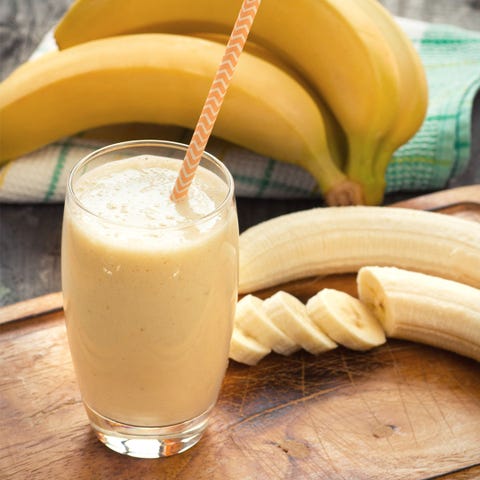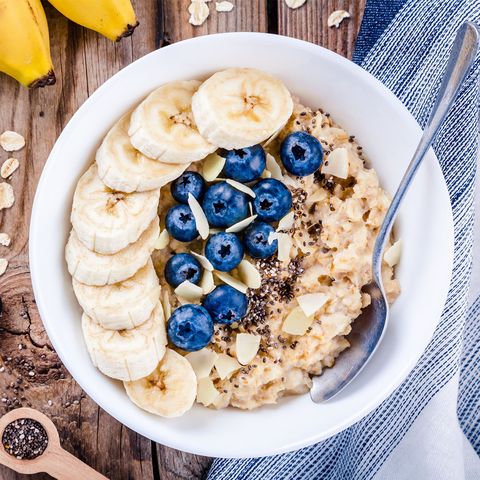Exactly What You Should Eat Before A Half-Marathon

Figuring out what the heck to eat before a half-marathon can feel just as difficult as the running itself. Eat too much, and your stomach cramps or bloats, sending you searching for the nearest bathroom mid-race. But eat too little, and you can say goodbye to any hope of a PR.
“Figuring out a training diet is critical for peak performance,” says Torey Armul, R.D., spokesperson for the Academy of Nutrition and Dietetics. “What you eat is the fuel for your working muscles. Eating the right foods keeps you energized, reduces cramping and minimizes fatigue during your workout.”
The first rule: Don’t try anything new, says Armul. “Don’t go to the new neighborhood sushi restaurant for the first time,” she says. “Stick with what you know and what you’ve tolerated well in the past.” You don’t want to introduce a new variable that could mess with your performance.
“For a long race like a half-marathon, it can be helpful to focus beforehand on eating adequate carbohydrates. This helps to ‘top off’ your glucose stores before you toe the line,” says Armul. (And you need glucose to make sure you don’t make like an older phone and lose your charge mid-race.)
But that doesn’t mean just downing a massive bowl of spaghetti, Armul says—that can be rough on the digestive system. “Keep your portions reasonable,” Armul advises, a.k.a. stick to a regular serving size—like 1/3 cup of rice or a slice or two of whole wheat bread.
And carbs aren’t the only food you should use to fuel up before a marathon. Skip out on race-day sluggishness and stomach aches with these dietitian-approved meal ideas:
24 hours before your race…
Breakfast options:

Getty Images
Lunch options:

Getty Images
- A whole-wheat sandwich with turkey, avocado, and cheese: Your muscles will want the glucose from whole-wheat bread (or other healthy grains that your body can quickly digest and use for fuel). Pairing it with a protein and a healthy fat means you get more fiber and fat for added staying power.
- Green salad with chicken, tomatoes, cheese, nuts, and olive oil: The greens are packed with vitamins and minerals to up your stamina, and putting them in a salad with protein, nuts, and healthy fats will give you the mix of macronutrients you need to feel strong, even after several hours of activity. And Cording says tomatoes contain lycopene, an antioxidant that fights inflammation and helps the body absorb iron (which you need to help carry oxygen in the blood during a race).
Dinner options:

Getty Images
- Salmon with a side of rice or potatoes and veggies: While any meat will give you plenty of protein to support muscle repairing and rebuilding post-race, salmon also offers omega-3 fatty acids, which can help counteract inflammation, Cording says.
- Bean-and-lean-meat chili: If your digestive system can handle it, make some bean-based chili for your pre-marathon dinner. Cording says they’re rich in protein, complex carbs, and iron, which will help get oxygen through your blood (and to your muscles!). Just proceed with caution—the last thing you want during a half-marathon is gas and bloating.
The morning of your race…
Breakfast

Getty Images
- Oatmeal topped with almond butter: Almonds, peanuts, cashews—they all contain satisfying amounts of fat and protein that your body digests slowly, therefore keeping you fuller (and energized) for longer. That’s a necessity for a long day of logging miles.
- Bananas and berries on top of peanut butter toast: You can get the same energizing boost from peanut butter, but on top of whole-wheat toast. The vitamins and minerals in fruits will also help fix cell damage from your 13.1 miles of cruising, says Armul.
Source: Read Full Article


